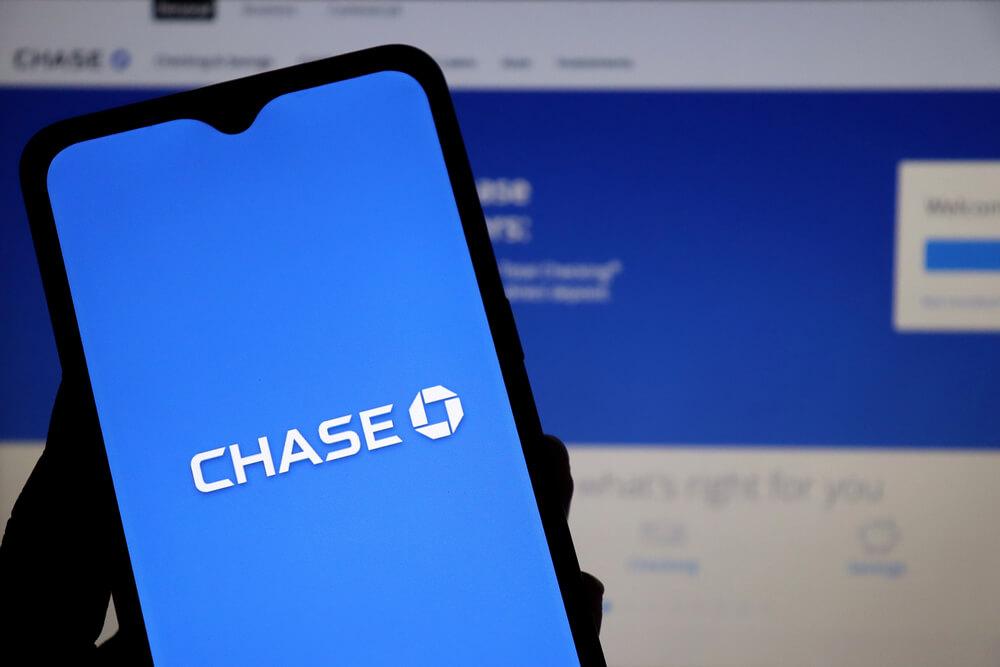Check out the top SMS and email phishing scams of the week! Would you have been able to spot the scams?
SMS Phishing
Disguising themselves as big brand names, scammers try to lure you into clicking on attached phishing links they include in text messages, aiming to steal your personal information. These are some of the variants of the scams we’ve noticed this week:
Work From Home Job Scam
Have you been looking for jobs online lately? Watch out if you receive messages with links to join an online meeting!
Scammers have been claiming that they are offering WFH job opportunities and they’ve been inviting people to join online meetings via embedded links:
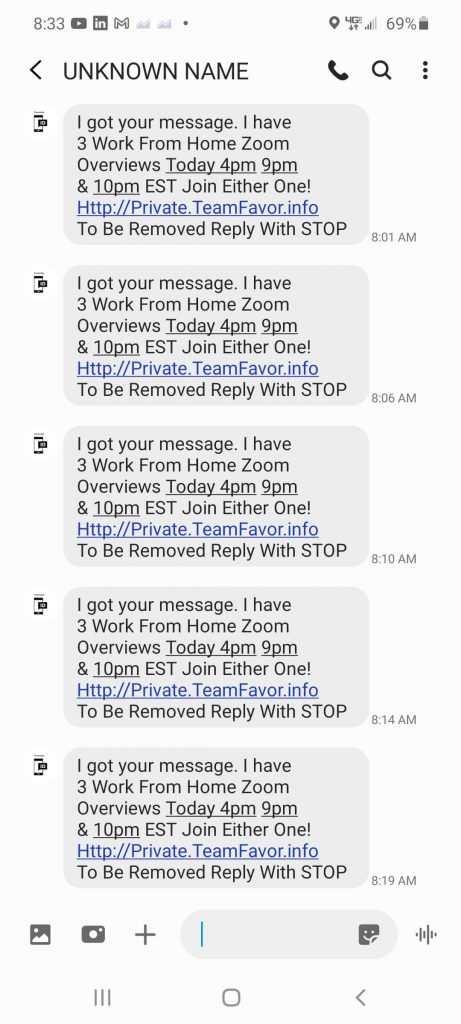
They’ve also been posing as famous brands like Flipkart and guaranteeing people high salaries and permanent WFH positions. They have been asking to be contacted via WhatsApp.
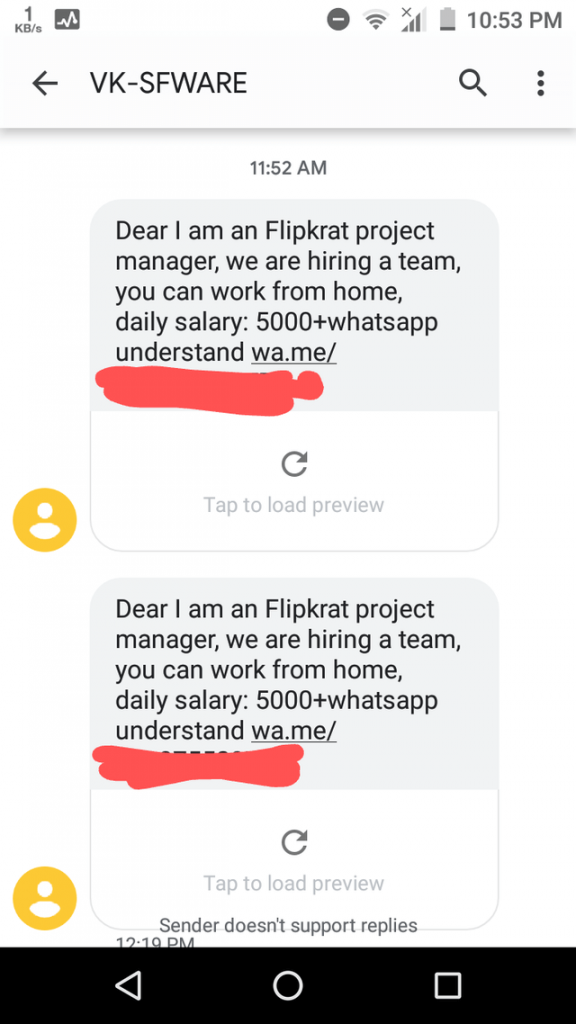
As you might expect, these links lead to scam websites (e.g. fake Zoom or WhatsApp login pages) where if you fall for the scams, you will have your login information exposed or lead toward other online job scams.
iPhone 13 / iPhone 12 Online Survey Scams
We reported on Best Buy iPhone 13 raffle scams last week, but we’ve still been detecting a lot of similar scams featuring iPhone 13/12s this week:
- You are getting the |PH0NE 13! Your C0URTESY 0ne ls waiting, but must be confirmed by today <URL>
- Robert, we’re sending you a package! Please confirm whether this box is yours: <URL>
Posing as famous brands, scammers send you text messages, falsely claiming that you’ve won a prize (an iPhone 13 or 12, for example) and instruct you to claim the gifts via the attached phishing link.
These links will take you to fake online survey pages where, if you fall for the scam, you’ll end up exposing your personal data such as your credit card information. Don’t fall for them!
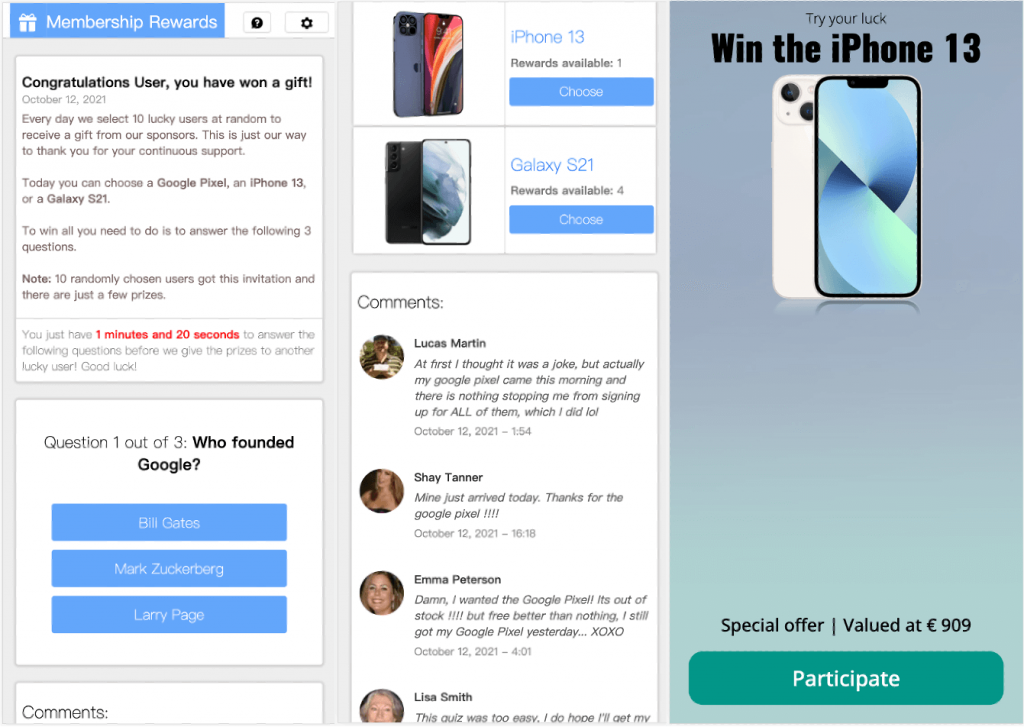
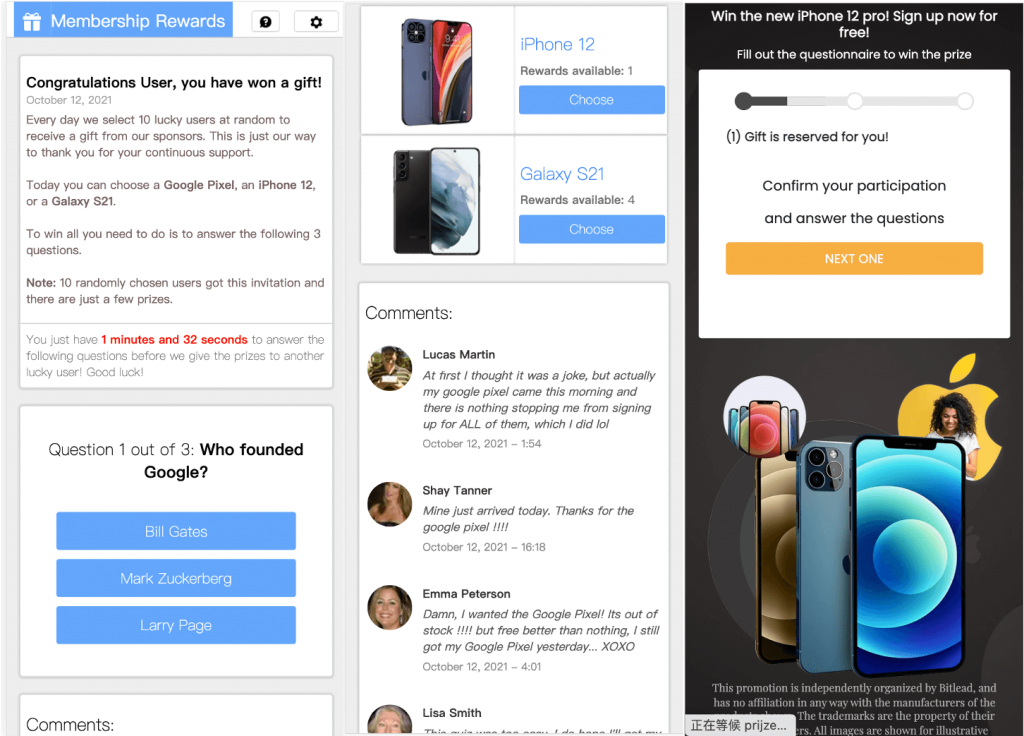
Chase Bank SMS Phishing
Received a strange identification code via text message from Chase bank? Don’t click on anything!
- your chase online login your identification code is: 48845263. if you didn’t request this code follow <URL> to secure your account. reply stop to ignore
Scammers impersonate Chase and send you a security alert, telling you that you can visit the attached link “to secure your account.”
The link leads to a fake Chase login page. If you submit your login credentials here, the scammer can record the data and use it to hack into your bank account. Don’t fall for it!
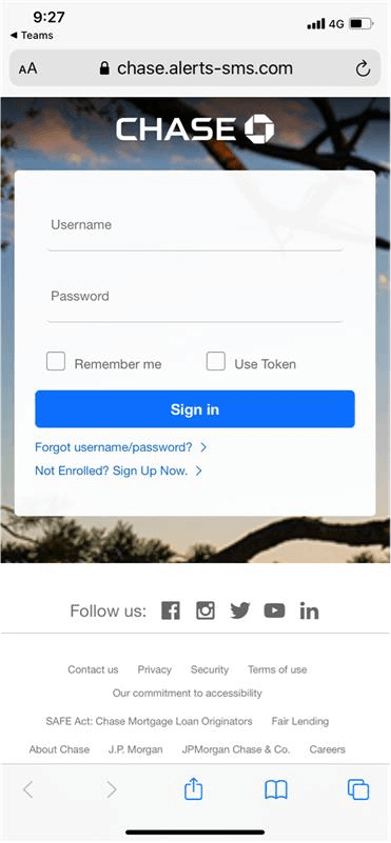
Email Scams
Elon Musk Email Scam (HTML attachment)
Many people have received emails with no subject, with the content consisting of only random letters and an attachment starting with the name Elon Musk:
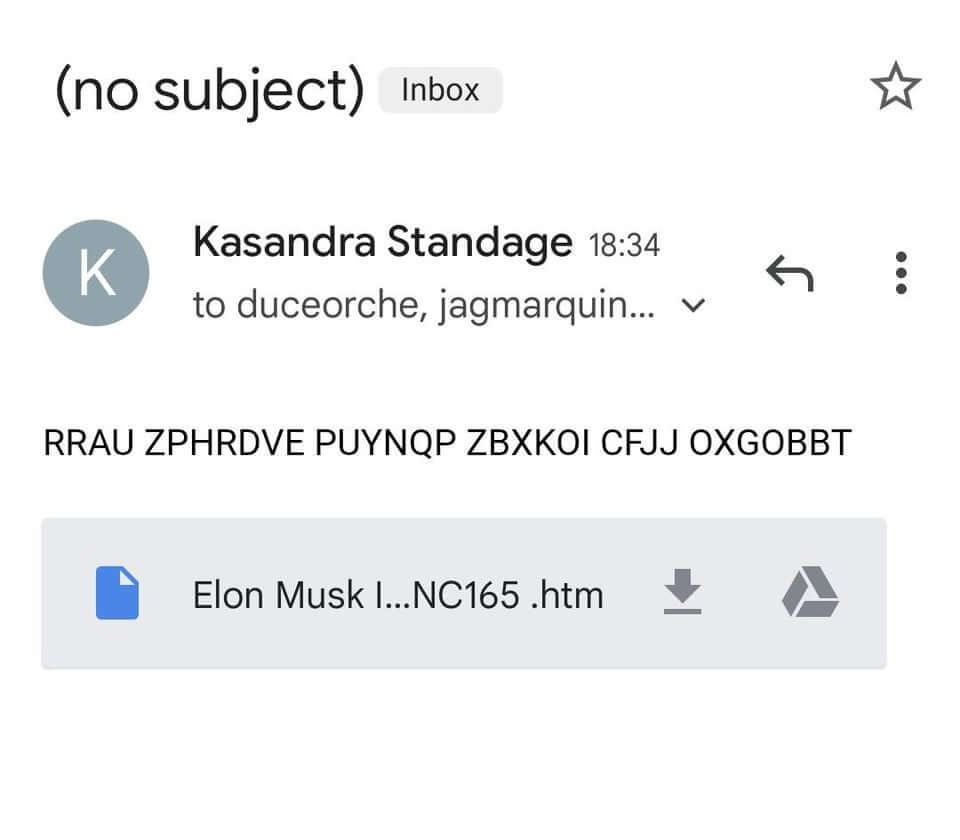
The “.htm” attachment will lead you to a scam website and ask you to enter personal information. Like all other phishing scams, anything you enter will end up in the scammers’ hands.
Bitcoin Sextortion Scam
“Do You Do Any of These Embarrassing Things?” These scammers have been calling themselves “hackers” and threatening to expose people’s private videos unless they get paid in bitcoins. Don’t panic. It’s a scam!
We’ve written about sextortion email scams several times. Scammers always tell you that your device is infected with malware and they’ve been able to spy on you. They urge you to send them bitcoins, or else they will publish your private photos, videos, and web history.
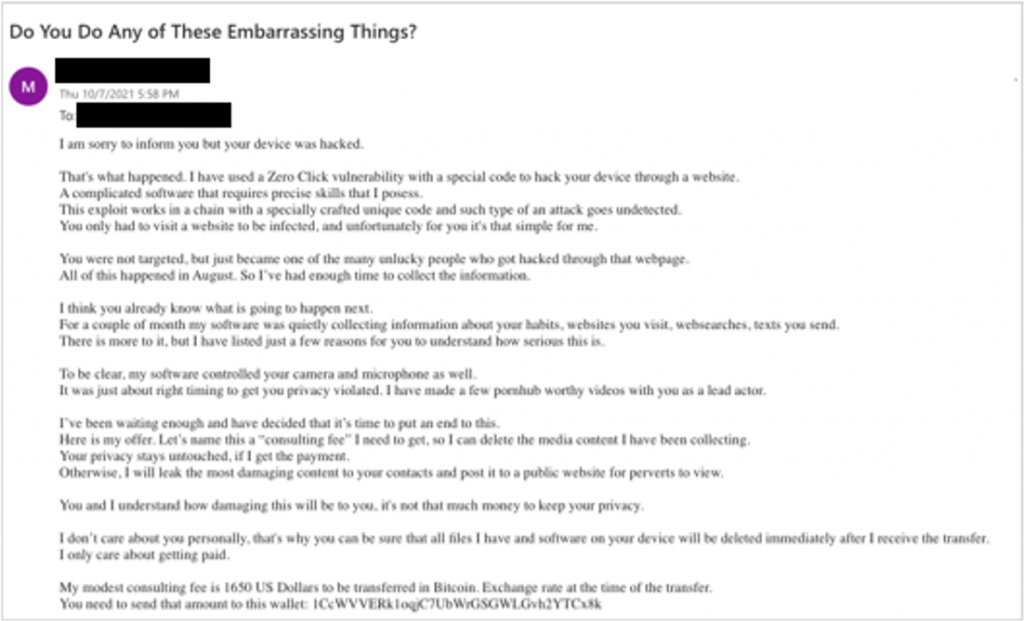
Please ignore the email and delete it. Don’t follow the instructions. It is just a SCAM!
COVID-19 Compensation Scam
Is the United Nations (UN) sending you COVID-19 compensation in exchange for your personal information? No! Don’t give out anything. It’s a scam!
Posing as the UN or other organizations, scammers falsely claim you can get a huge payment if you reply to their messages with personal details like your name, mobile number, and home address. Watch out! If you do provide the information, scammers can use it to commit further scams like identity theft.
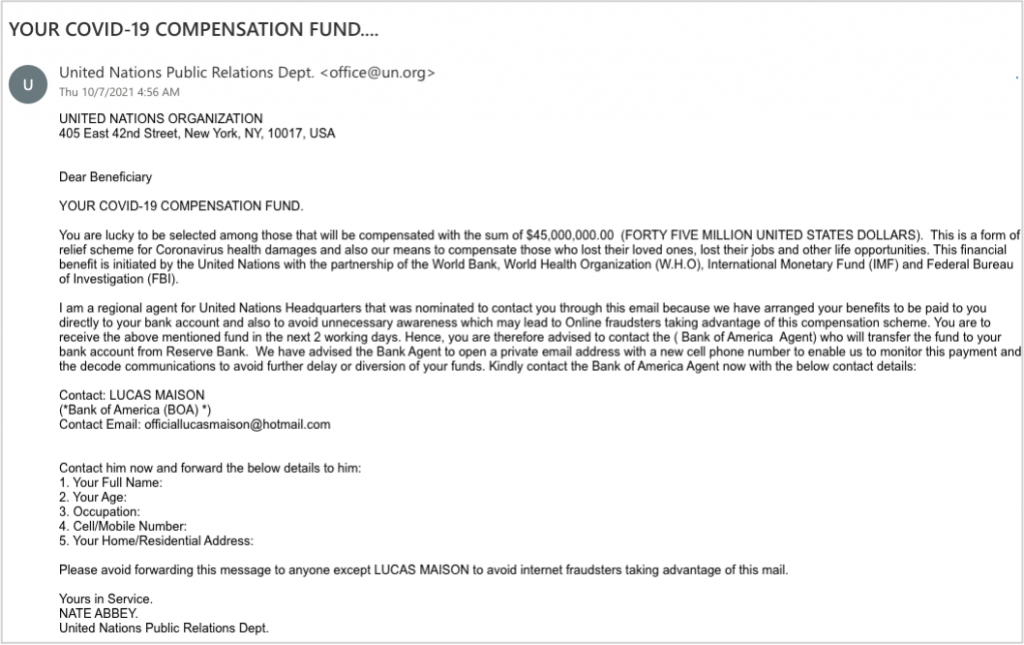
Microsoft Office 365 “Pending Mails Notice” Phishing
Think twice before you click on any links or buttons embedded in an email! Recently many people have received the “Pending Email Notice” from Microsoft. Scammers tell them that they’ve got pending emails in their MS 365 inbox and that they have to click on a button to release them.
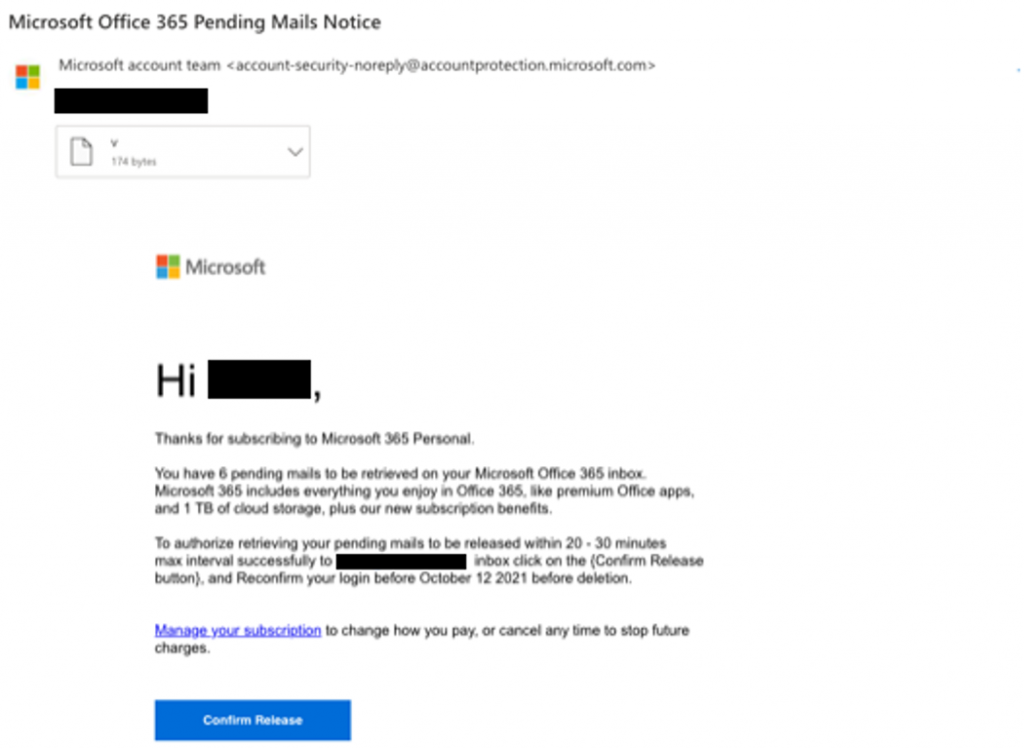
Again, the link is a phishing link. Now, you already know what’ll happen: personal information stolen, account credentials hacked…and so on.
How to Protect Yourself
- Double-check the sender’s mobile number/email address.
- Free gifts or prizes are always a major red flag.
- Reach out to an organization’s customer service directly for help and support.
- NEVER click links or attachments from unknown sources. Use Trend Micro ScamCheck to detect scams with ease!
1. After you’ve pinned the ScamCheck browser extension, it will block dangerous sites for you automatically:
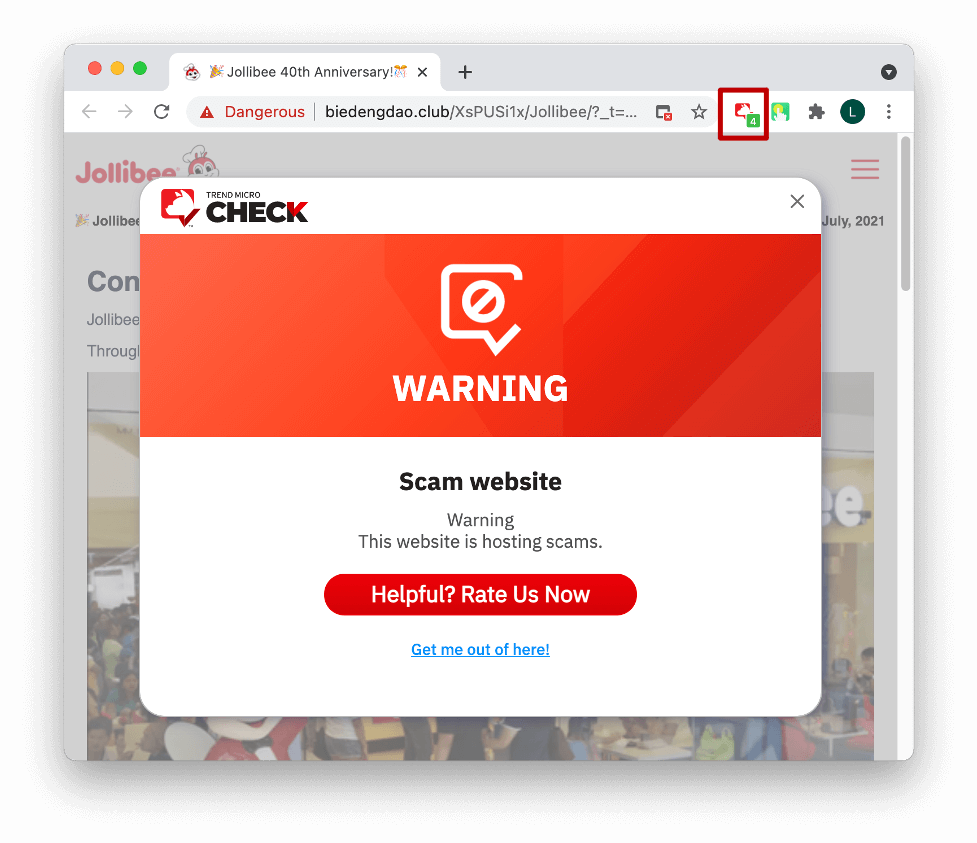
2. Send links or screenshots of suspicious text messages to ScamCheck on WhatsApp for immediate scam detection.
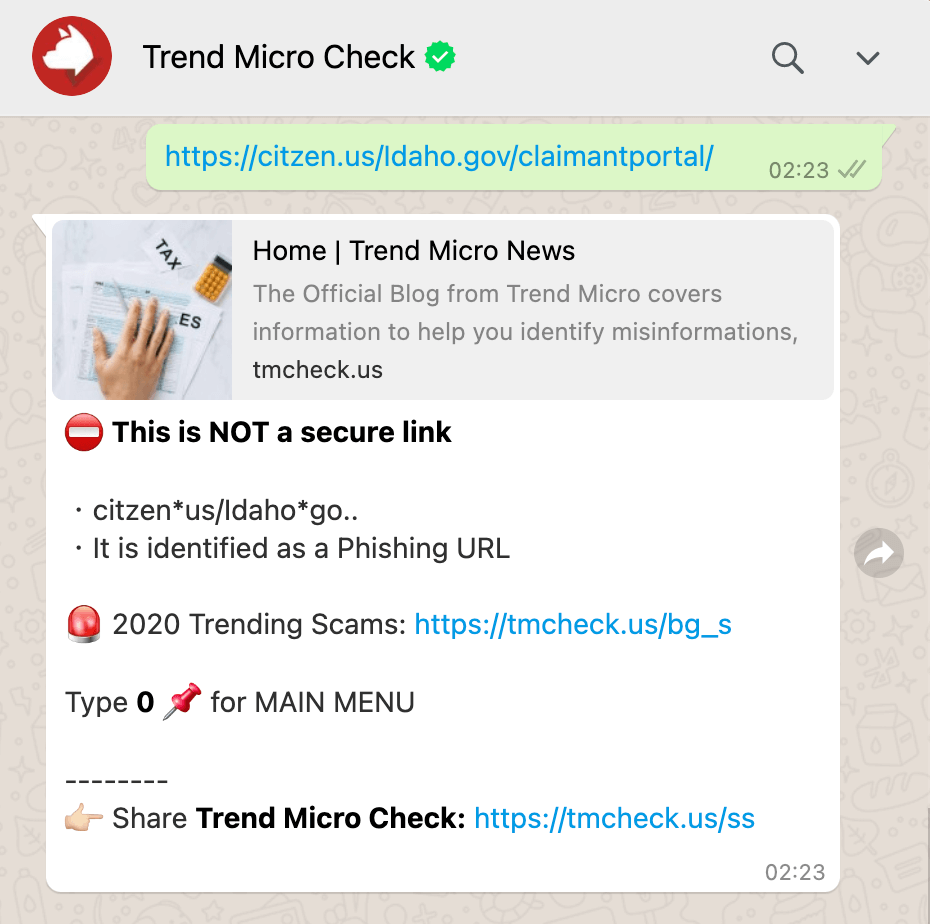
Don’t forget to add an extra layer of protection to your device with Maximum Security! It includes Web Threat Protection, Ransomware Protection, Anti-phishing, and Anti-spam Protection to help you combat scams and cyberattacks. Click the button below to give it a try:
Did you successfully spot the scams? Remember, always CHECK before giving out personal information. If you found this article helpful or interesting, please SHARE it to help protect your friends and family!
